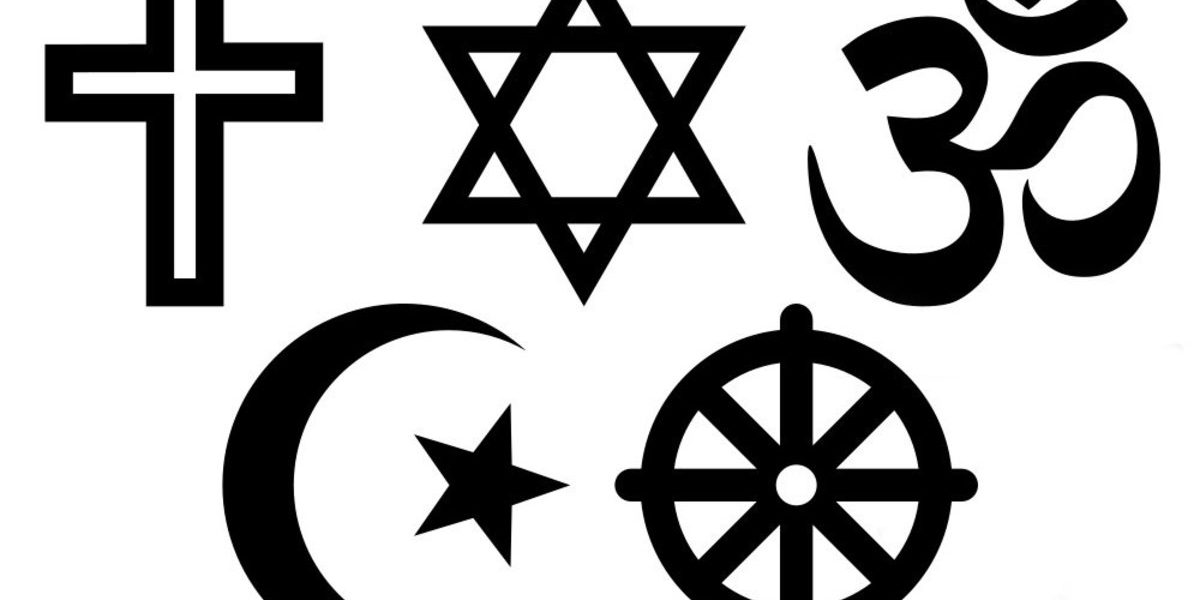Jaime Torres, UPR-M
Religion always has a motive
Tinta regada
1 de enero de 2024
First, I want to lay the groundwork for what I’m about to say. I was a monotheist Christian for 18-19 years of my life. I am also a pastor’s son – therefore, my relationship with Christianity is a lot more intense than most people. I’ve been at the forefront of a church, of the community, of the spirituality, and everything that goes on backstage. This wasn’t a “my grandma takes me to church on Sundays” type of thing. I was the first one in, the last one out, the only one that came, and the one with the highest expectations.
My parents were devoted entirely to this monotheist religion, and it honestly it may have done me more harm than good. As the years passed and my knowledge grew, I steered away from it all and found myself understanding this in a broader context. I’m agnostic (or as some ignorant people call it, “atheist lite”) but the idea of polytheism makes a lot more sense than following a monotheistic life.
Let me explain.
What ultimately bogs down monotheists is the idea of a singular all-powerful, all-knowing, all-present deity that is responsible for everything in our world including, our happiness, our safety, our health, and our prosperity. You have no choice but to accept this as a fact. There is no other option but to follow that singular deity, even if you don’t agree with some of what it claims to be.
Have you ever thought of what Apple does with its ecosystem (the network of devices it has and the connectivity between each other)? They make it so that there is only really one option, and it is very hard to leave even if you want to.
I think of monotheism as the same.
If you get ignored by this deity, that’s it. You can’t go to another and plea for their mercy. (Apple’s ecosystem matches the same plan.) In polytheistic culture, each god has a preferred way to be addressed, to be thanked, to be revered, and so on. As a believer, you have the option to choose the god that fits you best or whatever god you need for a particular thing. Think of them as specialists in their own fields. Monotheism tries to fit everyone in the same pot, regardless of what may be the best.
You may think: “But god (Christian god) can be anything you need, and you have free will to adjust the relationship as you need.” Every monotheist religion follows a set of rules. In Christianity, it is the Bible. This is the most revered scripture of them all. It is THE GUIDE for God to accept you and for “heaven.” If you refuse or do not agree with what is written, you are in the wrong.
Then you say: “But not all these things can be applied to current society as it was written so long ago.” If that is true, the Bible is open to interpretation. Is it not? Polytheism gives you the freedom of choice and this humanizes the relationshiup to the deities. Polytheistic deities with human qualities are imperfect: they have impulses, they fear, and they love, and they regret just as much as we do. In a sense, you could create a relationship deeper to that than to an all-powerful and perfect (male, in the case of Christianity) deity.
Why do you think Christians follow Jesus? It was the only way they found to actually relate to God. They humanized God, in order for common folk to find a way to God. John 14:6: “I am the path, the truth, and the life. No one comes to the Father except through me” – Jesus Christ. This exists because God needed to split himself into another deity (even though they claim it is the same) for mortals to reach this higher power. (In a sense, it is also a type of polytheism, a topic debated before and since Nicea.)
Let’s think about who benefits from each. In my experience and my knowledge, monotheism benefits people who need order and repetition in their lives. There is a caveat to choice. The abundance of choice leaves some to be displeased with their choice and others not being able to choose at all. Monotheism will place you into a group who follow your same goal, your same ideal. It will allow you a connection in current society and it will also be the easiest to start and have all the rules already in place for you. Polytheism on the other hand is for people who do not like to be bound by a particular set of rules, that may have tried monotheism in the past and did not really align with it. It’s for people who understand that perfection doesn’t exist and that living a life so unbelievably correct is impossible. Polytheism can be channels their individual needs and goals, and relate to a realistic form of self-improvement.
Questioning our existence is arguably part of human nature. Religion seizes that and sometimes abuses it. This is incredibly effective as a weapon and monotheism only makes it easier to wield. It is no surprise that monotheism benefits those in power the most. Maybe one day the West will look beyond submission to monotheism and let irrefutable ideals be rethought through logic and compassion.
